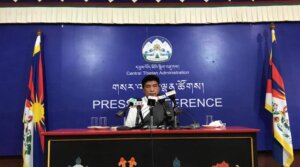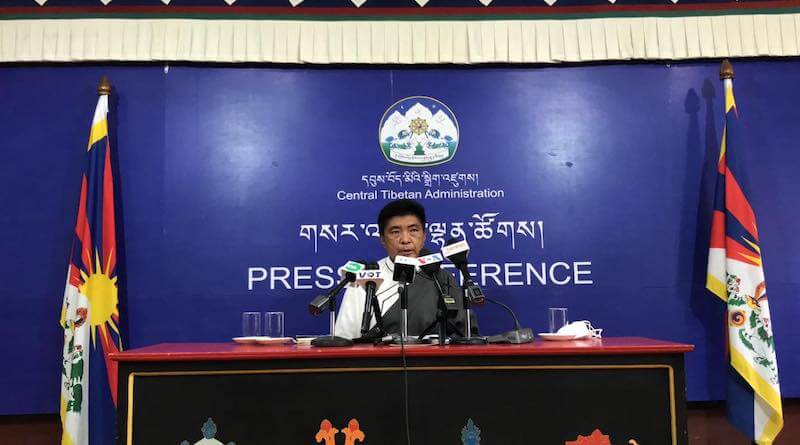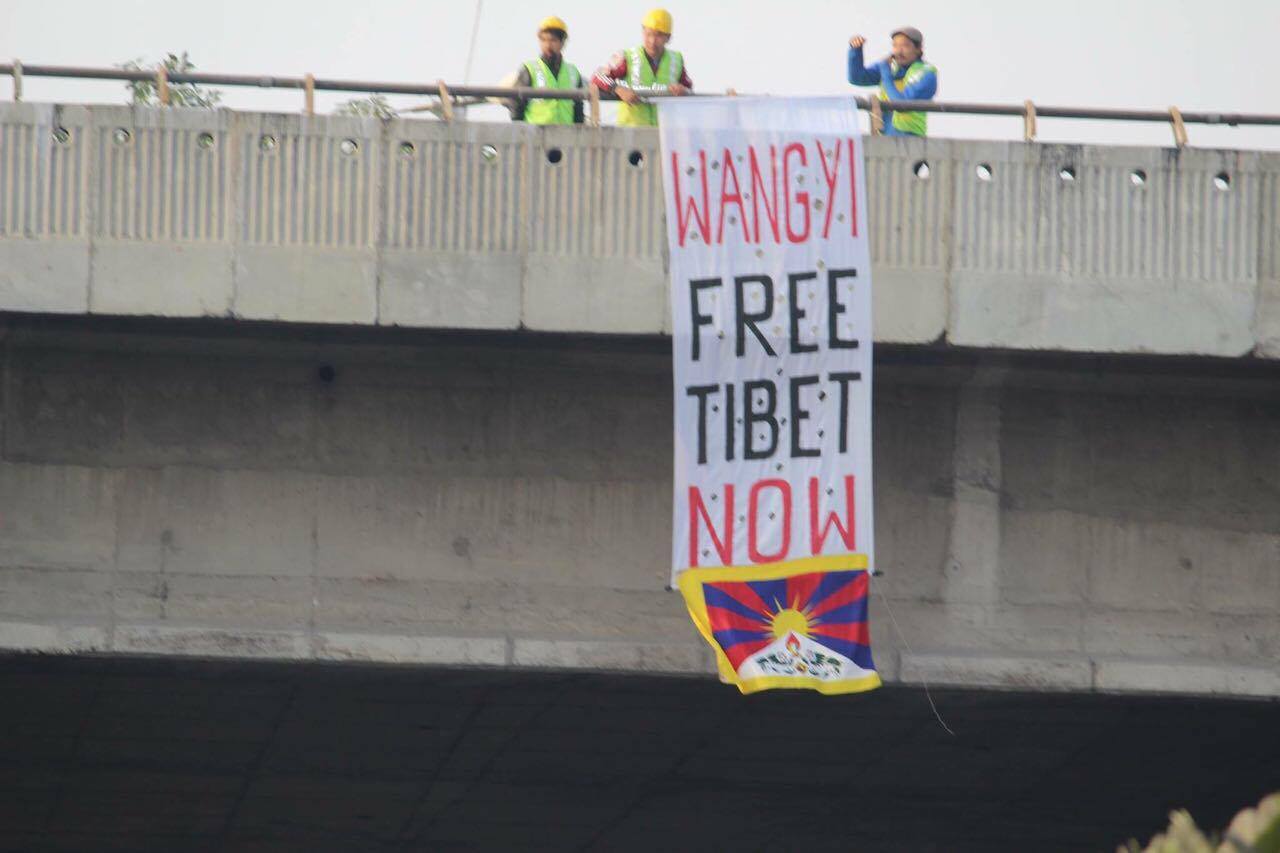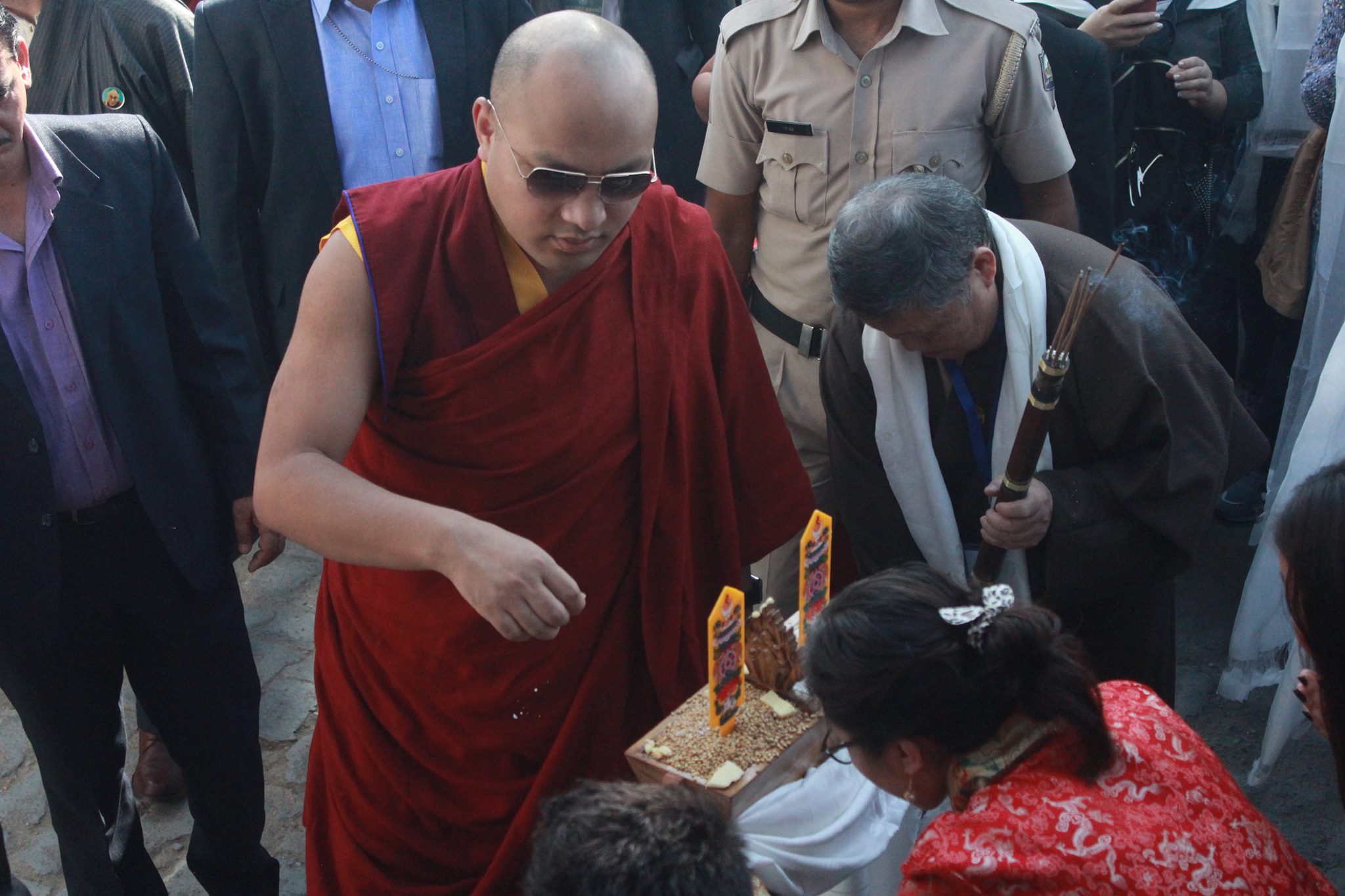Can not go beyond Article 47 when it comes to oath-taking ceremony: CEC

DHARAMSALA, 18 June: The Chief Election Commissioner(CEC) of the Central Tibetan Administration(CTA) today said that the Election Commission can not go beyond Article 47 of the Charter of the Tibetans-in-Exile when it comes to the oath-taking ceremony of the 7th Tibetan Parliament-in-exile (TPIE) while stressing on the need and the importance of upholding the rule of law in a democratic setup.
Wangdu Tsering Pesur, the Chief Election Commissioner(CEC) of the CTA made the remarks today ten days after the members of the 17th TPIE took their oath of office in two separate ways while fielding questions from the media after holding a press conference to explain its stand on the stalled election of the speaker and the deputy speaker of the 17th TPIE.
When asked whether both the parties upheld Article 47 as the prescribed order by the Charter requires the MPs to their oath of office from the pro-tem Speaker who needs to the oath of office from the Chief Justice Commissioner who has been removed by the TPIE in March, the CEC said, “ the EC upholds the Charter of the Tibetans-in-Exile and that it can not simply disregard the Charter and function saying there are two groups of MPs.”
As the CEC stressed again that only 21 MPs took the oath of office from the pro-tem Speaker in accordance with Article 47 and that it falls short of the house quorum as mandated by Article 49 declaring the election of the speaker and the deputy speaker can only proceed after meeting Article 49, when enquired why the EC did not stop MPs from engaging in two separate ways to oath take the oath of office, Wangdu Tsering Pesur said: “ask the question to the Parliament Secretariat.”
The CEC further stated that both the Charter and the election rules do not provide a time frame for the MPs to take the oath of office and but he added that the ongoing limbo can not remain for long.
However, he added that the CEC has not made a decision yet on the political limbo and that he hopes “it won’t come to that.”
On Motion No 39, through which the 16th Tibetan parliament impeached the Chief Justice Commissioner and the two Justice Commissioners of the Tibetan Supreme Justice Commission that lies at the heart of the present limbo, when asked about the commissions stand on Article 39 and whether the CEC considers or accepts the dismissal of the resolution passed by more than 2/3 of the MPs inside the house by MPs outside the parliament, the CEC said the commission upholds any laws, executive orders, and regulations passed by the parliament.
“Article 37(36) provides all the legislative power and authority to the parliament, and that it is simply impossible that we disregard it.”
Asked about the legality of pro-tem Speaker conducting meetings with the Commission and whether the pro-tem Speaker can engage in other activities other than administering the oath of office to the MPs, the CEC replied by saying “that the question can be best asked to either the pro-tem Speaker or the Parliament Secretariat.”
On the possibility of requiring a by-election and how will the two assistants of the CEC will be elected without a parliament, he said he prays and hopes it won’t come to that.
“Presently we are facing a problem with the oath-taking ceremony of the MPs. This being an internal problem can be resolved with an open-minded approach. To hold the election of the speaker and the deputy speaker, it involves Article 47 and this needs to be carefully considered,’ the CEC said and concluded by saying that after that, the parliament has the most power among the three pillars and that they can resolve their differences and that there is no scope for a problem.
On 8 June, twenty-one MPs of the Tibetan Parliament took their oath of office from the pro-tem Speaker Dawa Tsering who was administered the oath by the Chief Justice Commissioner who was removed by the TPIE in March, while 22 MPs who held it unlawful took their oath in front of the Charter and a portrait of His Holiness the Dalai Lama.
After the members of the 17th TPIE took the oath of office in an unprecedented manner, their days of business came to an abrupt end in the afternoon after the Chief Election Commissioner(CEC) Wangdu Tsering Pesur told the Tibetan legislatures that the election of the new Speaker and Deputy Speaker can only be conducted when the house meets the quorum and that he received only the list of 21 MPs who took their oath of office through the pro-tem Speaker.
Here is the link to ECE’s account and explanation of what caused the election of the Speaker and the Deputy Speaker of the 17th TPIE to stall. (click)
For now, the exile Tibetan government has been functioning without a parliament, one of the pillar of the democracy for more than two weeks with Sikyong Penpa Tsering as its executive head and the impeached justices from whom he took the oath of office at the judiciary having announced their return to their offices.






